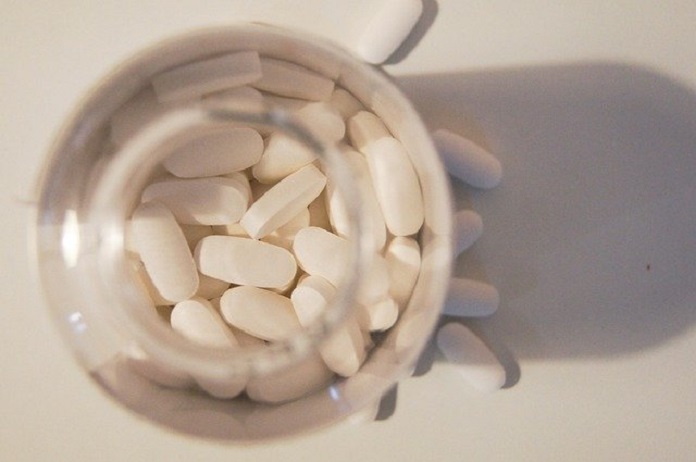Probiotics have been associated with improved mental health. Is there a link between probiotics and mental health?
The human gastrointestinal tract contains 100 trillion microorganisms, which are essential for health. Probiotics are safe live microbes that can be found in foods including yogurts, fermented foods, and fresh fruits and vegetables.
Probiotics have been linked to various health benefits, including a reduction in blood pressure, blood sugar, cholesterol, and risk of obesity – but are probiotics beneficial for mental health?
Probiotics help support a healthy immune system by replacing bad bacteria in the gut (which can cause illness or inflammation) with good bacteria.
There is a connection between the brain and the gastrointestinal tract, which is very important to maintain health.
This relationship, named the gut-brain axis (GBA), could potentially influence the development and progression of common mental problems, including depression and anxiety disorders.
However, the relationship between the central nervous system and the gastrointestinal tract is complicated and not fully understood.
It is thought that both the brain and gut are involved in determining the behaviors, emotions, and cognitive capacity (amount of information retained by the brain) of a person.
Mental health problems are a public health concern worldwide: more than 264 million people are affected by depression.
Depression is characterized by feelings of sadness, guilt, low self-worth, tiredness, loss of interest, and disturbed sleep.
Mild depression can be treated using psychosocial treatments, whilst moderate and severe depression normally require psychological treatments, such as cognitive behavioral therapy (CBT) and behavioral activation, as well as antidepressant medication.
However, 50-60% of mental health patients still have symptoms following first-line treatment, highlighting the need for more effective treatments.
Adding live microbes to your diet can be beneficial and health-promoting.
Whether probiotics can be used effectively to treat psychiatric conditions, such as anxiety and depression, is unknown.
If you have a mental health concern, seek help from a mental health professional.
Can probiotics be used to treat anxiety and depression?
A review article published in BMJ Nutrition, Prevention & Health, investigated the link between probiotics and mental health, specifically the use of probiotics in reducing symptoms of anxiety and depression.
The review used seven relevant studies, which included participants with a clinically recognized anxiety disorder and depression. The probiotic strains investigated include Lactobacillus acidophilus, Lactobacillus casei, and Bifidobacterium bifidium.
Each study found that the symptoms of both anxiety and depression were considerably reduced following probiotic treatment.
The researchers found that probiotics may be useful in the treatment of depression, particularly when used in combination with prebiotics or other therapies.
Patients suffering from both mental disorders and irritable bowel syndrome (IBS) may have additional benefits from the use of probiotics.
This is because probiotics help reduce pro-inflammatory cytokines from being released by the innate immune system.
The researchers stated, “The effect that probiotics have on patients with common mental disorders may be twofold: they may directly improve depression and they might beneficially impact a patient’s experience of their common mental disorder by alleviating additional comorbidities.”
However, the study was unable to provide enough evidence to support probiotic treatment to lessen anxiety in the absence of depression.
The value of probiotics in treating anxiety requires further research as the studies used in the review did not investigate patients primarily for an anxiety disorder.
Although there do not seem to be any negative impacts of using probiotic intervention to treat anxiety or depression, more investigation is required to discover the long-term effects of probiotic treatment.
It is also important to remember that people are affected by mental health disorders in very different ways.
This means that individuals require treatment according to their specific needs. For instance, people suffering from anxiety disorders or depression can have underlying conditions, such as impaired insulin production.
According to the researchers, “With a better understanding of the mechanisms, probiotics may prove to be a useful tool across a wide range of conditions.”
Are probiotics safe for everyone?
Although probiotics are generally safe for healthy individuals, it is important to be aware of potential side effects. Probiotics can cause side effects, such as stomach upsets, diarrhea, and bloating.
There may also be unidentified side effects associated with long-term use of probiotics.
Always consult your doctor before taking probiotics to make sure they are safe for you and seek help from a mental health professional if you have a mental health concern.
Written by Albina Babu, MSc
References:
Noonan, S., et al. (2020). Food & mood: a review of supplementary prebiotic and probiotic interventions in the treatment of anxiety and depression in adults. BMJ Nutrition, Prevention & Health. Retrieved from: https://nutrition.bmj.com/content/early/2020/11/05/bmjnph-2019-000053
Probiotics alone or combined with prebiotics may help ease depression (2020). EurekAlert! Retrieved from: https://www.eurekalert.org/pub_releases/2020-07/b-pao070220.php
Depression (2020). World Health Organization. Retrieved from: https://www.who.int/news-room/fact-sheets/detail/depression
Casey, M., Perera, D., and Clarke, D. (2013). Psychosocial treatment approaches to difficult‐to‐treat depression. Medical Journal of Australia, 199 (6), 52-55.
Image by tanya nova from Pixabay



